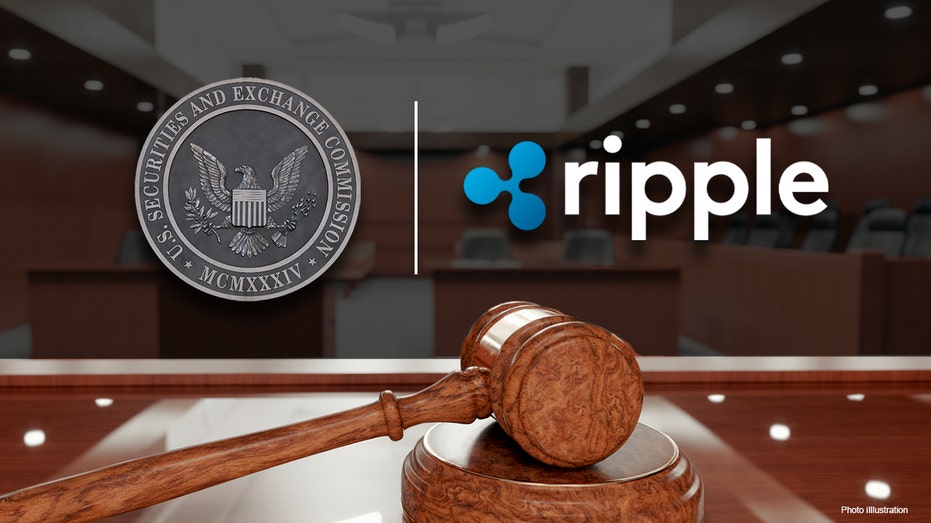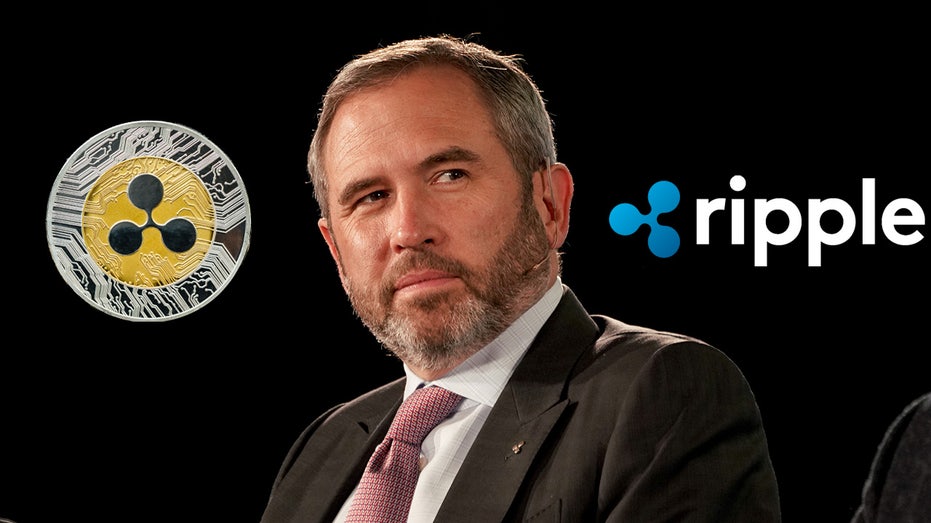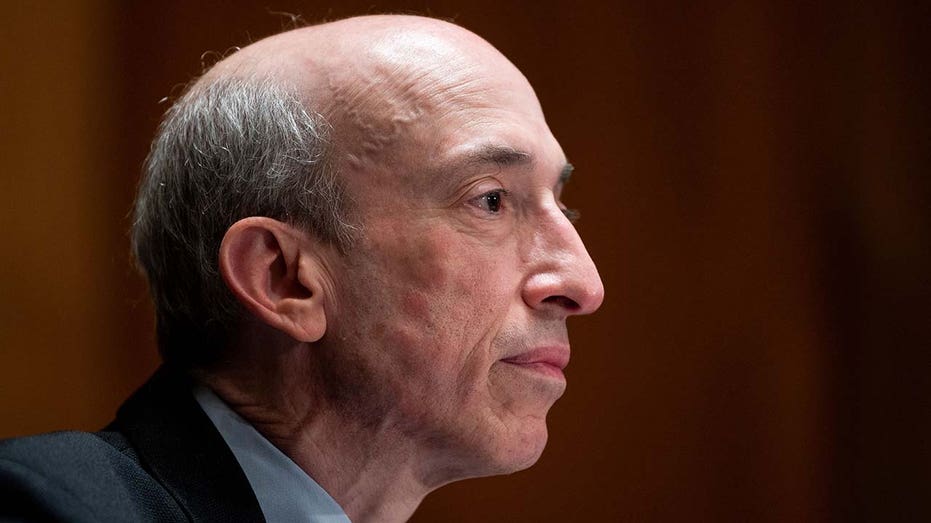Ripple CEO says landmark lawsuit will be decided by a judge
Brad Garlinghouse does not think the case will go to trial
Ripple CEO says landmark lawsuit will be decided by a judge.
Ripple CEO Brad Garlinghouse and FOX Business' Charlie Gasparino join 'The Claman Countdown' to discuss cryptocurrency and SEC behavior.
Ripple Labs CEO Brad Garlinghouse says a judge, not a jury, will ultimately decide the "cryptocurrency trial of the century."
In an interview with Fox Business on Thursday, Garlinghouse, whose company has been locked in a widely publicized legal battle with the Securities and Exchange Commission for nearly two years, said he expects the case will not go to trial because he believes the judge has enough evidence to rule from the bench.
Last weekend, both parties filed motions for summary judgment in the Southern District of New York, asking district judge Analisa Torres to make a ruling based on the facts presented in the respective briefs. The decision now rests with Torres to rule in favor of one of the parties or let the case go to trial.
DISTRICT JUDGE CALLS OUT SEC FOR HYPOCRISY IN RIPPLE LAWSUIT

istock (iStock / iStock)
But Garlinghouse is confident the latter won’t occur because the facts of the case are not in dispute. Judges often remand cases to juries when there’s a disagreement over the facts. This is different. Both sides agree that the Court can decide the case because what is primarily in dispute is the application of the law, not a dispute about the facts.
There is no dispute that Ripple sold XRP over the years and there is no dispute that Ripple's customers use XRP to facilitate cross border payments over Ripple's platform. The disagreement involves whether XRP is a special type of security known as an investment contract that falls under the jurisdiction of the SEC. Ripple contends that it never entered into any contract for an investment with any purchaser of XRP. The SEC argues that Ripple's sales of XRP should have been registered with the SEC based on court precedent.
"Trials and juries are really to determine if there’s uncertainty about facts," he said during an interview with the Claman Countdown. "The facts aren’t in dispute here. The law is in dispute."
Lawyers close to the case tell FOX Business that Judge Torres likely won’t make a ruling on the summary judgment motions until next year.
REGULATORY RIDDLE: AN INVESTIGATION INTO THE SEC V. RIPPLE CASE AND ITS CONSEQUENCES FOR CRYPTO
The latest filing of the summary judgment motions could mark a crucial milestone in the case that’s dragged on for nearly two years. In December 2020, the SEC sued Ripple and its two chief executives, Brad Garlinghouse and Chris Larsen, for failing to register XRP with the commission, thus putting the tokens in violation of federal securities laws.
The price of XRP fell dramatically when the lawsuit was announced, and despite a rally during the 2021 bull run and a recent spike, traders are of the opinion that the price remains suppressed by the lawsuit.
The SEC continues to argue that because Ripple used the profits from sales of XRP to build out its platform, buyers of the XRP token were relying on the efforts of Ripple to turn a profit, thus satisfying a key requirement of the so-called Howey Test.
That 1946 Supreme Court case is the precedent that determines whether an investment is a security and falls under SEC oversight or whether it’s a commodity like Bitcoin and thus does not require SEC registration. The Commission also alleges that by buying the token, investors of XRP had entered into an investment contract with Ripple, similar to the purchase of stock, meeting another requirement of the Howey Test.

Brad Garlinghouse, chief executive officer of Ripple Labs Inc., during the Milken Institute Global Conference in Beverly Hills, California, U.S., on Tuesday, Oct. 19, 2021. The event brings together individuals with the capital, power, and influence (Getty Images/iStock)
Ripple contends it has done nothing wrong and that sales of XRP on the secondary market are not influenced by the company, and that no investment contract ever existed between itself and holders of the crypto token. Ripple’s legal team has been vocal on its belief that the SEC, particularly its Chairman Gary Gensler, is trying to overstep his authority by assuming that all cryptocurrencies constitute securities.
CRYPTO ISSUES 'NOT JUST IDIOSYNCRATIC’ TO THE SPACE, INDUSTRY EXPERT ARGUES
"The SEC has lost its way," said Garlinghouse. "Congress gives the SEC power, the SEC can’t just take power."
Once it’s resolved, the case could have far-reaching implications for the crypto industry. A Ripple win could mean the SEC and Gensler may be forced to take a more measured approach to regulation, possibly ceding some of its regulatory jurisdiction to the Commodities Futures Trading Commission, which provides front-line oversight of non-securities such as commodities.

Gary Gensler, Chair of the Securities and Exchange Commission(SEC), testifies during the Senate Banking, Housing, and Urban Affairs Committee hearing on "Oversight of the US Securities and Exchange Commission" on September 14, 2021 in Washington,DC. ((Photo by BILL CLARK/POOL/AFP via Getty Images) / Getty Images)
An SEC win could see the agency expand its regulation of crypto well beyond XRP; some industry experts say the SEC could launch a similar case against Ether, the native token of the Ethereum blockchain and the second most valuable crypto after Bitcoin. The Ethereum platform was partially financed by selling unregistered tokens, known as an initial coin offering, in 2014.
CLICK HERE TO READ MORE ON FOX BUSINESS
Since taking office, Gensler has noticeably sidestepped questions on whether he believes Ether to be a security despite the token being deemed free from SEC oversight under former SEC Chairman Jay Clayton. Earlier this month, Gensler signaled he would support the CFTC having regulation over Bitcoin, which he has said is likely a commodity.
The SEC had no comment.





















